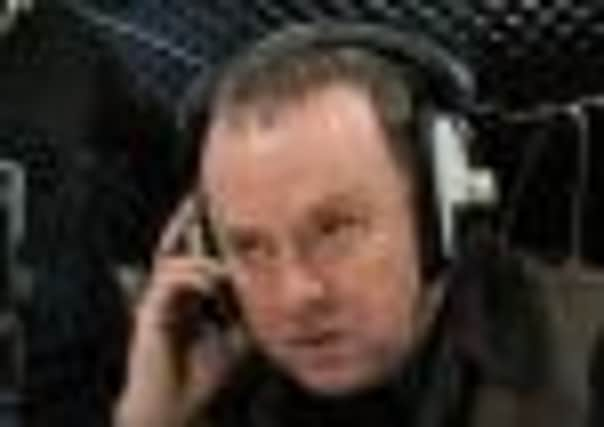Norton on Douglas: ‘He was a great and lovely man’


I THOUGHT Bill’s trilogy was an absolute masterpiece. So, I was incredibly excited about the thought of meeting the guy who made those films. I went up to meet him at his office in Soho. I don’t know what I expected, but the man I met was not what I expected from watching that terrible deprived background. He had transformed himself. He was this urbane, well-spoken man: a complete contrast to the wee boy in the trilogy. We chatted. The reason he wanted to see me was because I had played a lot of multi-roles in 7:84 and John Byrne’s play Writer’s Cramp.
“He asked if I knew anything about the Tolpuddle Martyrs. I had heard about them, and, as he filled me in, I was thinking, ‘Please, let me get this.’
Advertisement
Hide Ad“We started filming on army land in Dorset where the crew had reconstructed a hamlet from 1834. Bill’s original idea was to film the Dorset sequences in black and white. He then wanted an interval, and, when the men arrive in Australia, it was to be widescreen and in colour. We were to see this new land through the martyrs’ eyes, a panorama of colour, but he wasn’t allowed.
“As a director, Bill took no prisoners. He had daily rows on the set with the producer, a great man and a great champion of Bill, but nevertheless a producer who wanted to get the film finished on budget and on time. If Bill was not happy, the producer would not compromise. It was a tough shoot. There were several points during filming that we thought they were going to pull the plug. In Australia, the money was going to be pulled, but the principal actors offered to work for nothing, a principle I’m very much against. But we were prepared to do it because we were completely committed to Bill and his film. He never really gave you direction. He would tell you where to walk, stand and say your line, but you never knew really what he wanted in terms of the performance. He wanted you to somehow understand what he wanted.
“He took what he saw in his head and tried to put it into your head. At first it was daunting, but once you got into his way of thinking, it was remarkably freeing. It wasn’t like work, it was a joy.
“I was invited to the press screening room in Soho at one rainy morning. Barry Norman was there, and I said, ‘I hope you enjoy it.’ He said, ‘Well, if John Ford can tell a good story in an hour, I don’t see why Bill Douglas can’t.’ Comrades was three hours long. I thought, ‘Oh, no.’ Sure enough, a week later on Film 88 Norman said the same line. He had made up his mind before he went in and he singlehandedly sank it. I’m not saying it’s the greatest film ever made, but it is a genuine, low-budget British epic.
“When Bill died, I was gutted. I could not believe it. He had sent me the screenplay for Confessions of a Justified Sinner and he wanted me to play Gil-Martin. I was delighted, as you can imagine. It was supposed to be going ahead, and the next thing I got a phonecall saying Bill was dead.
“He was great and lovely man.